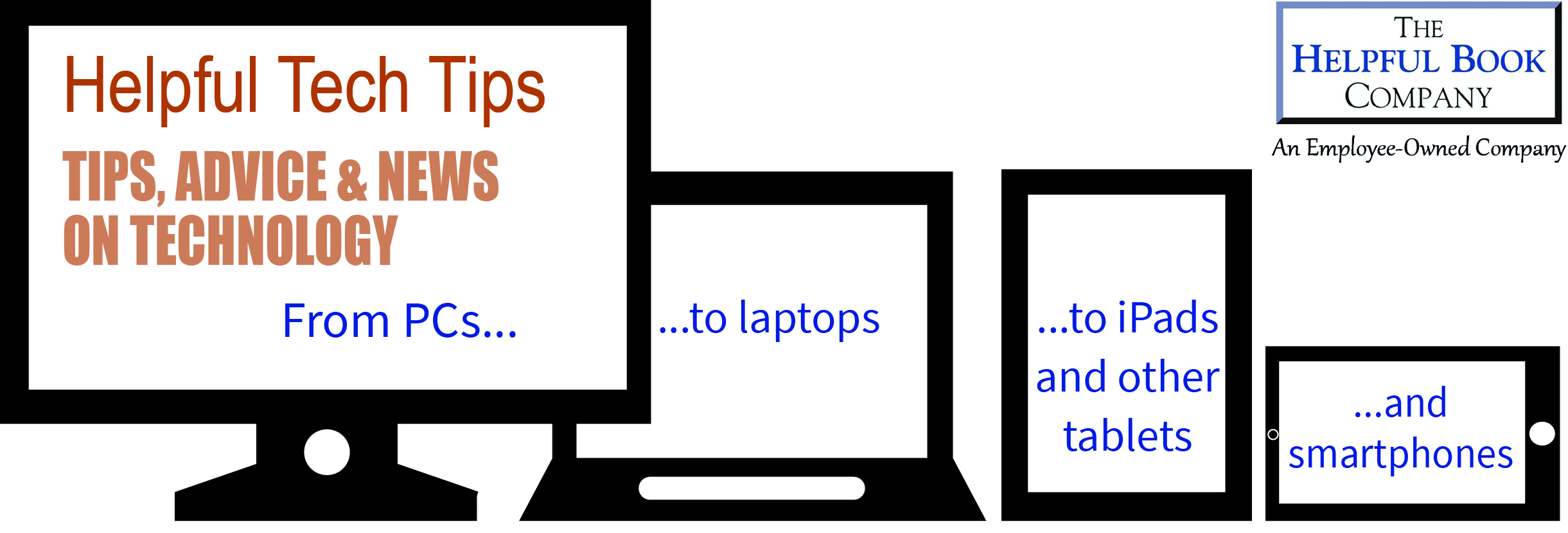Over the weekend, I was trying to think of some tips to pass on to you in this week’s email newsletter.
And it occurred to me that some of the advice that Tim and I have given over the years probably isn’t true any more. Technology changes – and along with it, the best way to use it changes too. So I thought I’d get together a little list of things that I’m pretty sure we’ve advised in the past that just isn’t true any more.
I’ll maybe try to make this a regular-ish thing – as other changes occur to me, I can point them out to you in this newsletter.
So – here we go…
How to charge a battery
With a rechargeable battery like you get in a laptop, tablet or phone, you want it to keep its charge as well as possible. How well it keeps charge over time depends a lot on how you charge it.
The advice with old laptop batteries (NiMH batteries) was to charge them fully while they were turned off, then let the battery go all the way down to zero as you used them. (That stopped them building up a charging “memory”.)
But with modern batteries (Li-ion batteries) – doing that will actually decrease their working lifetime. So here’s the current recommendation for charging up your gadgets:
1. During the week, try to keep the battery charge between around 30% and 80% – don’t fully charge the battery too often, and definitely don’t let it run out (that’s really bad for a modern battery).
2. It’s okay to use the device while it’s charging, so long as it’s not getting too hot. If it starts to feel hot in your hand, turn off the screen and leave it to charge.
3. At least once a week, leave your tablet or phone turned on and plugged in with the screen off for at least an hour, so it can do back-ups.
Bluetooth and WiFi
On the topic of battery, this is something else that changed dramatically a few years ago.
So, Bluetooth is just the name of a type of connection (a bit like WiFi) that your phone can make with other devices. It’s used for connecting to a smartwatch, or a keyboard, or a speaker – things like that.
When Bluetooth first came in on mobile phones, it was “active”. So if you had it turned on, it was constantly scanning for something to connect to. And that didn’t half eat your battery! It was awful – if I’d turned it on to play some music and then forgotten to turn it off again, it drained my battery in about an hour.
WiFi was similar – so if you had the WiFi turned on on your phone, but weren’t actually connected to a network, it would be constantly looking for one.
So the advice was to only turn on Bluetooth when you were actually using it, and to turn WiFi off when you left the house.
Thankfully, you don’t have to do that now. Apple and Google both changed the way Bluetooth and WiFi work so that they only scan for networks when you actually ask them to. Gosh – what a novel idea! So they now only use up battery when you’re actually connected.
Anti-virus
Last one (for now).
If you have PC or laptop, you need to have anti-virus software to keep you safe from nasties. Microsoft include one as part of Windows, but the received wisdom for many years was that it wasn’t as good as other anti-virus programs.
That’s all changed now. For an ordinary user, the built-in Windows Defender software is every bit as good as the Nortons and McAfees of the world – and it doesn’t cost you a penny. If you’re part of an organisation that uses a network (like Helpful Books), it makes sense to have a specialist program – we use one made by Kaspersky. But for a standard home user – save your money!
That’s it from me for this week.

thanks very much for your help now to get going with my printer (hope) have bought the books off you many years ago still have them well worth every penny, thanks again for your help, Jill Bland